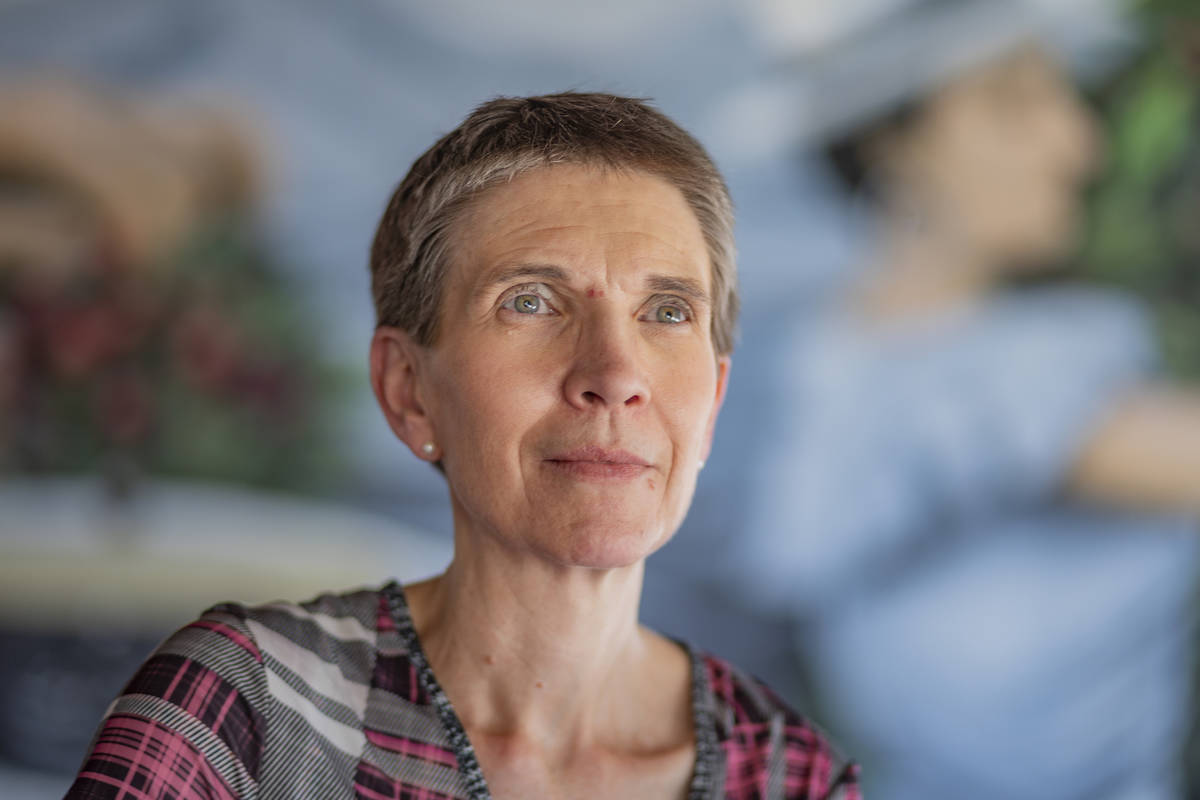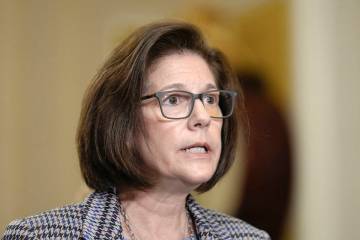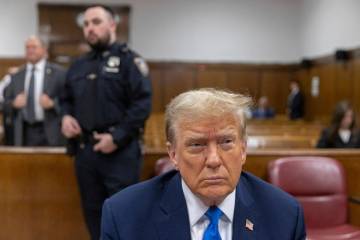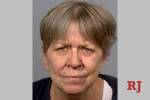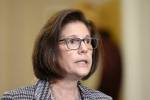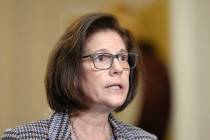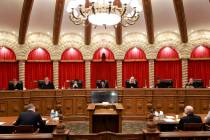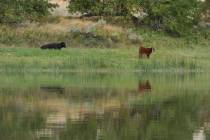Despite women leaders, female political participation in Nevada ranks low
For even the most casual of political observers, it’s clear that women run Nevada.
Apart from the country’s first and only female-majority Legislature, both of Nevada’s U.S. senators are women.
Half of the state’s four-member congressional delegation consists of women, and three of the state’s six constitutional officers are women.
The Nevada Supreme Court has a female majority. The state’s three largest cities — Las Vegas, Henderson and Reno — are led by women mayors. The chair of the Clark County Commission is a woman.
These facts were backed up recently in an August report from the Institute for Women’s Policy Research, which rated Nevada No. 1 in the country in terms of women holding elected office and shaping policy.
But another report, written by the same institute, revealed a troubling, even paradoxical trend in a state so well-represented by women: Nevada women registered to vote and participated in the 2016 and 2018 elections at rates near the bottom of the country.
The reasons for the seemingly at odds participation statistics depend on whom you ask.
Reports
The first report scored Nevada No. 1 in the country using an index that looked at the number women holding congressional, legislative, gubernatorial and statewide offices.
It notes that 52.4 percent of the state legislators in Nevada are women, Colorado is closest to capturing the country’s second female-majority legislature, at 45 percent.
The institute’s North Carolina report averaged 2016 and 2018 numbers to score Nevada 46th in the country in the percentage of women who were registered to vote, at 59.3 percent, and 45th in the percentage of women who actually voted in the two elections, 49.1 percent.
Taking both sets of figures into account, the state still scored sixth in the country in overall women’s participation in governance, according to the institute.
Why?
Sondra Cosgrove, president of the nonpartisan League of Women Voters of Nevada and a history professor at College of Southern Nevada, said she was not surprised by either result.
“There have been studies in the past that show that political space is not really seen as being female space,” Cosgrove said. “It’s going to take a while before that changes. I mean, all the way up until the 1970s, women had to use their husband’s name to open a checking account.”
Cosgrove said a major problem for many possible voters, but women in particular, is that they don’t see the political processes as means to solving their problems.
“A lot of women in my neighborhood are ready to have a martini because they’re home with their kids as a secondary teacher dealing with slow internet,” she said. “I don’t hear anyone talking about that. Is anyone saying we should have a bill on broadband access next session? I’m pretty plugged in, and I haven’t heard that.”
She continued: “You have three kids at home, your internet service is slow and you’re doing the best you can. But you’re not thinking, ‘Boy, I should vote because that’s going to solve these problems.’”
Cosgrove said politicians need to get better at listening to women, something that has proved even more difficult during a 2020 cycle in which the coronavirus pandemic has limited voter contacts.
Rural women are particularly disadvantaged this cycle, as they may not have the means to participate in online forums, town halls or other remote means of political dialogue.
Cosgrove said both political parties are too concerned with arguing and suing each other to really listen.
Some noteworthy effort and outreach are spent registering new voters and combating voter suppression, but there’s less focus on giving those who are already registered a tangible reason to turn out.
That’s where the league comes in.
“You call my board, and I say let’s make a deal,” Cosgrove said. “You get registered, and we will help you research issues. You stay engaged, and we will help you bring some accountability.
“We’ll show you how to use public comment, call offices, see how your representative voted. … And if they say something and do another, you can hold them accountable and tell them why you aren’t voting for them next time.”
Cosgrove also faulted the state’s part-time legislative calendar, saying the Nevada Legislature has far too much power to be meeting only every other year.
“When people call me, they’re mad now,” she said. “And I say unfortunately, your city and county don’t handle this, you need to talk the the Legislature, and they don’t meet until February. So they lose interest.”
Women in office
Danna Lovell is the executive director of Emerge Nevada, which has graduated some 250 Democratic women seeking elected office in its 14-year history. Emerge has 39 alumnae on the ballot in 2020, including Nevada’s first female state Senate Majority Leader, Nicole Cannizzaro.
“If you look at (former Assembly Speaker) Barbara Buckley or Dina Titus, who was in the state Senate at the time we started in 2006, we have had strong women leading in Nevada for many years,” she said. “As women see other women holding those offices, it allows them to see themselves possibly doing it as well.”
The deliberate, intentional recruitment of women to run for office over the years, including women who are from underserved communities or live in underserved areas, has allowed for the creation and shaping of laws that help women and families in the state, Lovell said.
She pushed back on the report’s low ranking for participation and registration of Nevada women, saying that averaging 2016 and 2018 may have skewed the current participation of women in the political process.
“What we know for sure is that women came out in droves in 2018,” Lovell said. “There has been more involvement ever since things like the Women’s March. We have seen a spike in applications for candidate training at Emerge.”
Novell said more outreach is needed in communities of color and low-income neighborhoods.
However, Novell praised efforts by the state to ease both registration and voting access through things like automatic registration at the Nevada DMV, same-day registration on Election Day and increased vote-by-mail options in this cycle.
“Women more often need those options,” she said. “They’re caring for their kids, helping with their schooling and often managing their family life. The more accessible voting is, the more women will vote.”
Contact Rory Appleton at rappleton@reviewjournal.com or 702-383-0276. Follow @RoryDoesPhonics on Twitter.



